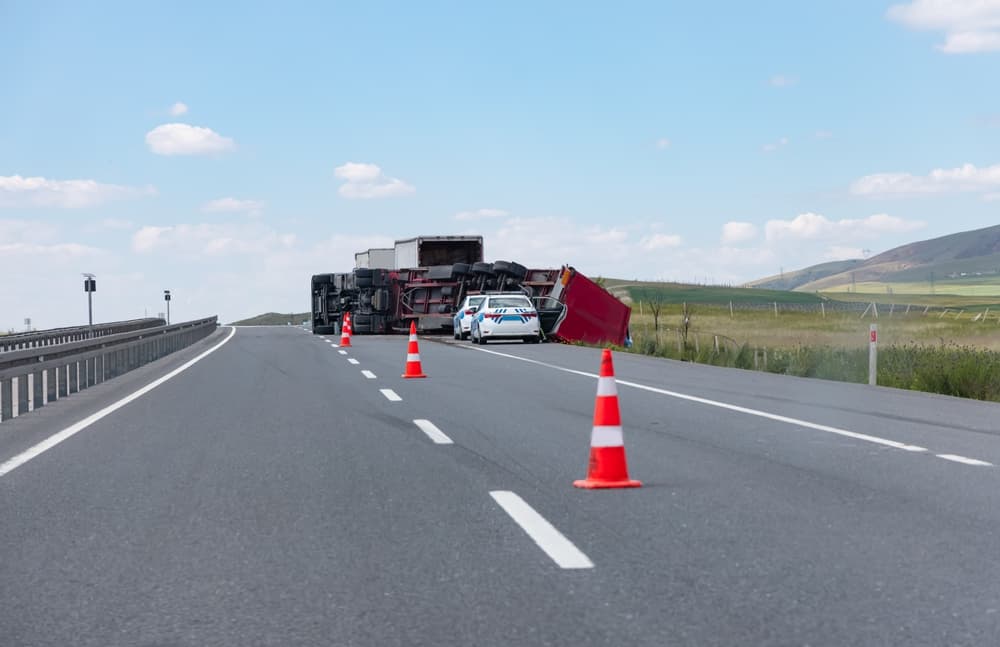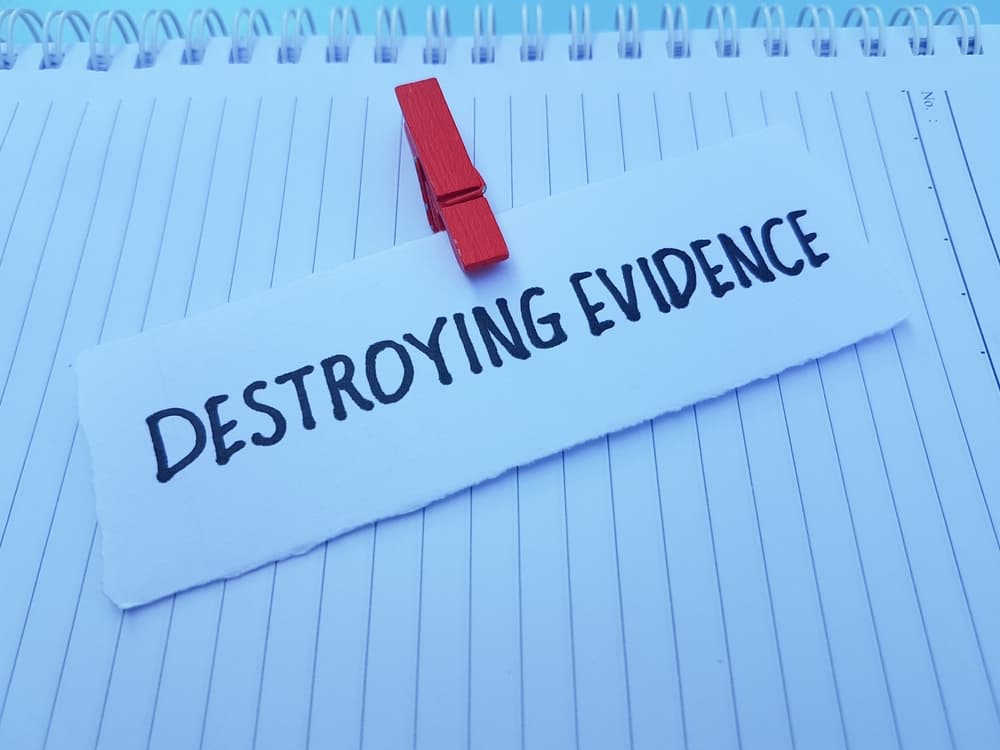When a truck driver flees the scene of an accident, the aftermath can feel chaotic and frustrating. You're left dealing with injuries, property damage, and unanswered questions about what happens next.
Leaving the scene of an accident is not only unethical but also a violation of the law. The stakes are higher in these situations because large commercial trucks are involved, and the consequences of their negligence can be devastating. Knowing how a truck accident attorney can help you pursue justice is vital.
Why Do Truck Drivers Flee Accident Scenes?

Truck drivers leave accident scenes for various reasons, many of which point to negligence or even intentional misconduct. Here are some of the common motivations behind their actions:
Fear of Losing Their Job
Truck drivers are often held to strict professional standards. Many are employed by companies with policies that penalize them severely for accidents, even minor ones. A driver facing disciplinary action or on the verge of termination might flee to avoid repercussions.
Driving Under the Influence
Some truck drivers leave accident scenes because they're under the influence of alcohol or drugs. If caught, they face not only job loss but also criminal charges, license suspension, and other penalties.
Unlicensed or Underqualified Drivers
Drivers without the proper commercial licenses or operating outside the scope of their qualifications may flee to avoid discovery. Companies sometimes hire or tolerate unqualified drivers, and those drivers may take desperate measures to avoid scrutiny.
Exhaustion or Violations of Hours-of-Service Rules
Many truck drivers are under intense pressure to meet tight deadlines. To do so, they might exceed federally mandated hours-of-service limits, leading to fatigue and unsafe driving. If an accident occurs, drivers violating these rules might flee to avoid the penalties for falsifying logbooks or working beyond their legal hours.
Fear of Existing Criminal Warrants or Record
Drivers with outstanding warrants or a criminal history may flee to avoid interacting with law enforcement. They know that even a minor traffic incident could lead to an arrest.
Overloaded or Unsafe Cargo
Some truck drivers operate vehicles carrying loads exceeding legal limits or not properly secured. If cargo contributes to an accident, the driver might leave the scene to avoid penalties and liability for safety violations.
Tools a Truck Accident Lawyer Uses to Identify the Driver
When a truck driver flees the scene of an accident, the situation can feel both frustrating and daunting. Holding the driver accountable is an uphill battle. However, a truck accident lawyer has access to various tools and strategies to uncover the identity of the fleeing driver and prove liability. By working methodically, lawyers gather crucial evidence to ensure justice is served.
Collaboration with Law Enforcement
Truck accident attorneys frequently collaborate with law enforcement to obtain vital evidence. Police officers responding to the scene often collect details about the truck involved, including its make, model, or partial license plate information. Surveillance footage from traffic cameras, nearby businesses, or dashcams can provide additional visual evidence, making it easier to identify the vehicle.
Lawyers also use forensic data gathered by law enforcement, such as paint transfer or tire marks, to support their case. This collaboration ensures that all potential leads are followed and every piece of available evidence is utilized to identify the fleeing driver.
Reviewing Electronic Logging Devices (ELDs)
Federal regulations require most commercial trucks to use electronic logging devices (ELDs) to track their hours of service. These devices record data on the truck’s movements, including its location at specific times. Even if the driver fled the scene, their ELD can provide a clear timeline of the truck’s activities before, during, and after the accident.
A truck accident lawyer can subpoena ELD records to pinpoint the truck's location and corroborate witness accounts or physical evidence. This information can be critical in narrowing down potential suspects.
GPS and Telematics Data
Modern trucks often have GPS systems and telematics technology that monitor the vehicle’s real-time location and driving behaviors. Telematics data includes information on speed, braking, and acceleration, which can help reconstruct the events leading up to the crash.
By analyzing this data, lawyers can establish whether a specific truck was in the vicinity of the accident and determine if reckless or negligent driving contributed to the crash. GPS and telematics records are particularly useful in hit-and-run cases because they provide objective evidence that can’t easily be disputed.
Subpoenaing Maintenance and Inspection Records
Commercial trucks must undergo regular maintenance and inspections to ensure they’re roadworthy. These records can confirm the vehicle’s identity and provide insight into potential mechanical issues that may have contributed to the accident.
For example, if a truck’s brakes failed and caused a collision, maintenance logs can reveal whether the trucking company or driver neglected necessary repairs. By subpoenaing these records, attorneys can establish a direct connection between the truck and the crash, even if the driver initially fled.
Witness Testimony
Witnesses play a critical role in identifying a fleeing truck driver. Bystanders, other drivers, or passengers may have observed key details about the truck, such as company logos, license plate numbers, or distinctive features like paint colors or cargo types.
A truck accident lawyer skilled in interviewing witnesses can gather and document these observations. Even small details can provide valuable leads, helping to identify the responsible party.
Social Media and Public Records Searches
Social media platforms and public records can offer unexpected insights into a truck accident case. Drivers sometimes post about their day or even incriminate themselves by discussing accidents online. Public records searches can also reveal the truck’s registration or ownership details.
By monitoring social media activity and exploring public records, an attorney may uncover evidence linking a specific driver or trucking company to the incident. These tools are particularly effective when traditional identification methods fail.
Utilizing Accident Reconstruction Experts
Accident reconstruction experts use physical evidence, such as skid marks, debris patterns, and vehicle damage, to recreate the events of a collision. Their analysis often points to the type and size of the vehicle involved, which can narrow the search for the fleeing truck.
Reconstruction experts can also identify contributing factors, such as the truck’s speed or braking distance, which support negligence claims. These findings add credibility to the case and strengthen the argument for holding the driver accountable.
How Trucking Companies Try to Conceal or Destroy Evidence

When a truck driver flees the scene of an accident, trucking companies may take deliberate actions to shield themselves from liability. These tactics often aim to conceal or destroy evidence, making it more challenging for victims to prove their claims. A skilled truck accident lawyer will identify these practices and counter them effectively.
Delaying Access to the Truck
Trucking companies sometimes stall investigations by restricting access to their vehicles. They may claim the truck is essential for business operations or intentionally relocate it to another state. These delays can result in the loss of critical evidence, such as tire marks or visible damage to the truck.
Lawyers understand the importance of acting quickly to preserve evidence. By filing legal motions, they can prevent trucking companies from using delay tactics to their advantage.
Altering or Falsifying Logbooks
Although ELDs have replaced traditional paper logbooks for most trucks, some companies and drivers may still falsify records to hide hours-of-service violations or other misconduct. Digital data can also be manipulated if immediate steps aren’t taken to secure it.
A truck accident lawyer can compare logbook entries with other evidence, such as GPS data or fuel receipts, to identify discrepancies. These inconsistencies often reveal attempts to cover up negligent behavior.
Destroying Dashcam Footage
Dashcam footage is one of the most compelling pieces of evidence in a truck accident case. It provides a clear view of the events leading up to the crash and the driver’s actions. Unfortunately, trucking companies sometimes overwrite or destroy this footage, especially if it implicates their driver.
Attorneys act swiftly to issue preservation letters, legally requiring companies to retain all relevant dashcam recordings. Failure to comply with these letters can result in severe legal consequences for the company.
Pressuring Witnesses or Employees
Some trucking companies attempt to influence the outcome of an investigation by pressuring witnesses or employees. Dispatchers, maintenance workers, or other drivers may be coerced into providing false statements or withholding information. Witness intimidation is another tactic used to weaken your case.
An experienced truck accident lawyer knows how to protect witnesses and gather truthful testimony. By identifying patterns of intimidation, they can expose unethical practices and strengthen your claim.
Removing Vehicle Identification Marks
After an accident, some trucking companies quickly repaint or repair their vehicles to conceal identifying marks, such as logos, license plate numbers, or visible damage. These actions make it harder to link the truck to the crash.
Skilled attorneys counteract these efforts by using photographic evidence, witness accounts, and pre-existing vehicle records. By establishing a timeline of the truck’s condition, they can demonstrate that the vehicle in question was involved in the accident.
Failing to Preserve Inspection and Maintenance Records
Trucking companies must maintain detailed records of their vehicles’ inspections and maintenance. However, when an accident occurs, these records may conveniently go missing. This is often a deliberate attempt to hide evidence of negligence, such as skipped repairs or unsafe equipment.
Attorneys ensure that companies can’t avoid accountability through record tampering or destruction by issuing subpoenas and filing motions to compel document production. Courts may also impose sanctions on companies that fail to comply with legal preservation requirements.
Other Ways Attorneys Can Overcome These Tactics

Truck accident attorneys know how to respond to attempts at evidence tampering and hold the responsible parties accountable. They use aggressive legal strategies to counteract these deceptive practices, including the following:
Filing a Spoliation Letter
Attorneys send spoliation letters to trucking companies immediately after being hired. These letters legally require the company to preserve all accident evidence, including ELD data, maintenance records, and dashcam footage. Ignoring such a letter can result in serious consequences during litigation.
Issuing Subpoenas
Subpoenas compel companies to provide critical evidence, such as GPS records, internal communications, or inspection logs. Legal pressure ensures companies can’t simply refuse to cooperate.
Conducting Independent Inspections
Truck accident lawyers often request access to inspect the truck involved in the accident. They bring accident reconstructionists or forensic experts to document vehicle conditions before repairs erase evidence.
Leveraging Discovery Requests
During the discovery process, attorneys can demand detailed information from the trucking company, including hiring records, driver background checks, and internal communications about the crash. These requests often reveal attempts to conceal violations.
Seeking Court Sanctions for Non-Compliance
If a company refuses to cooperate or destroys evidence, a truck accident lawyer can request sanctions from the court. Sanctions may include penalties or even rulings that presume the destroyed evidence would have been unfavorable to the company.
Holding the Driver and Company Accountable
Even when a driver flees, you have legal avenues to seek compensation. A truck accident lawyer holds all liable parties accountable, including the driver, the trucking company, and potentially third parties.
- Direct driver liability: A driver who leaves the scene commits a criminal offense. Attorneys work with law enforcement to ensure they face the legal and financial consequences.
- Employer liability: Under the legal doctrine of vicarious liability, trucking companies are responsible for the actions of their drivers while they’re on the job. This applies even if the driver fled the scene.
- Third-party liability: Sometimes, other parties, such as cargo loaders or maintenance contractors, contributed to the accident. An attorney investigates all potential sources of liability to maximize your compensation.
Helping You Move On With Your Life After a Truck Accident
The process of seeking justice can feel intimidating, especially when the driver fled the scene. However, with the support of a truck accident lawyer, you can take action to protect your rights and secure the compensation you need to recover. By identifying the fleeing driver, uncovering the trucking company's tactics, and presenting compelling evidence, your attorney ensures those responsible are held accountable for their actions. Please contact a Waco personal injury lawyer right away for a free consultation.
